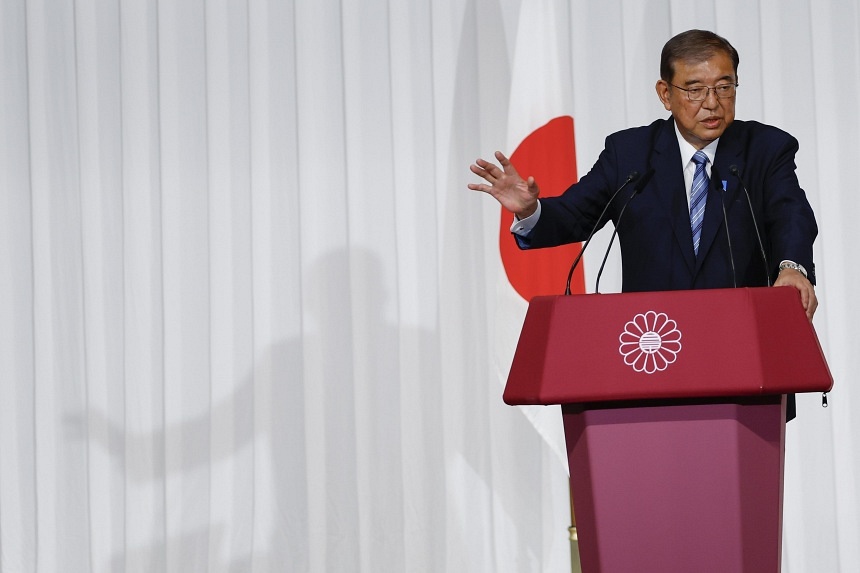TOKYO - Like many in Tokyo’s Itabashi district, Ms Yayoi Magara for years voted for a veteran Liberal Democratic Party (LDP) candidate – but this time the 70-year-old cast a blank ballot.
It was her way of “punishing” lawmaker Hakubun Shimomura for a slush fund scandal that contributed to a disastrous election for the LDP, she told AFP.
Mr Shimomura held a seat in Itabashi for nearly three decades, winning nine consecutive terms until losing in the Oct 27 poll.
“He is a good guy, but sometimes power clouds your judgment,” Ms Magara said, explaining she had long “trusted” Mr Shimomura, a former education minister.
“Given the recent scandal, it was kind of my way of punishing him, and telling him that he should humble himself once again as a politician and start afresh.”
Mr Shimomura, 70, stood as an independent candidate because he was suspended from the LDP after 4.8 million yen (S$41,600) of funds raised from supporters went missing.
He spent much of his campaign canvassing door to door in what media dubbed an “apology pilgrimage”.
Around 57,300 people voted for him on Oct 27, a tally eclipsed by his Constitutional Democratic Party rival, who steamed home with around 80,900 votes.
“It was entirely my fault – every day, from morning to night, I did my best to regain trust, but I fell short nonetheless,” Mr Shimomura told reporters on the night of Oct 27.
The same story was seen nationwide, with LDP strongholds toppled in a display of “suspicion, mistrust and anger” over the scandal, Prime Minister Shigeru Ishiba said on Oct 28.
Exit polls and partial results show the LDP – which has governed Japan nearly non-stop for the past seven decades – will miss a majority together with its junior coalition partner.
Official results are still pending.
Voters have also been rankled by rising prices and revelations of LDP lawmakers’ connections to a Christian movement after the 2022 murder of former premier Shinzo Abe.
The LDP’s election drubbing “was a result of people across Japan wanting to change the current situation”, said 44-year-old company employee Takako Sasaki.
“People from overseas are very happy to visit Japan because of its social infrastructure and cleanliness,” she said.
“But it is the people who work in Japan who keep it clean”, and so seeing wages barely rising is “very hard”.
In Itabashi, a 47-year-old housewife who declined to be named said she had become fed up with the ruling party.
“I wasn’t bothered too much by the slush fund thing. It was more a build-up of long-time frustrations against the LDP,” she said, adding that she had voted for a fringe opposition party, almost by elimination.
Turnout in Oct 27’s election was just over 50 per cent, but “there was a high level of frustration among the public at large”, said 77-year-old freelancer Yutaka Ikeda.
Inflation, concerns over child-rearing and stable employment for young people are among the main issues, the voter said.
“I think they suffered such a big loss because they didn’t listen to the people,” Mr Ikeda said. “For a long time, they conducted politics by putting themselves at the centre.”
Mr Masakazu Ikeuchi, a 44-year-old restaurant worker, also took a glum view of the state of the nation.
“As long as our own lives don’t improve, I think everyone has given up on the idea that we can expect anything from politicians,” he said. AFP

 By The Straits Times | Created at 2024-10-29 22:22:59 | Updated at 2024-10-30 07:28:14
1 day ago
By The Straits Times | Created at 2024-10-29 22:22:59 | Updated at 2024-10-30 07:28:14
1 day ago



